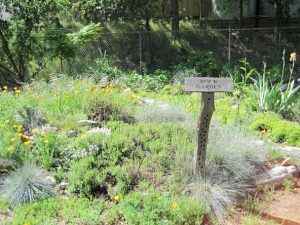“The more one gardens, the more one learns. And the more one learns,
the more one realizes how little one knows.” Vita Sackville-West
I never feel so myself and so right with the world as when I’m working, puttering, or just sitting in awe of my fledgling garden and the wildlife it draws (not to mention poring over gardening books). That’s a fortunate feeling to have, because if you stick with gardening long enough, there are many, many times when it will break your heart. But with failure comes valuable lessons, so it seems fitting at the new year to gather a few stories from local Master Gardeners about what they learned last year.
My favorite comes from a Master Gardener who prefers to remain nameless because of the “high crime” she committed. “I have a prolific adult Japanese maple tree. It dispenses seeds all over my yard. Three years ago I decided to pot up the one-inch babies and grow them out. I have done this before but only one or two at a time. This time I did thirty. I kept them under lights, then moved them to the covered patio, and finally to a shady spot in the yard. When the seedlings were a foot tall, I became impatient and gave them a super-sized fix of fertilizer. Way too strong. Every one of them died.”
Speaking of losing plants, but in this case to changing weather, Vera Strader says, “My lesson learned, as a result of our recent soggy winters, is to rely less heavily on super drought-resistant natives. I lost numerous tough (or so I thought) plants during our frequent downpours and am now adding plants with a variety of water needs.”
And then there are our cute little friends, the neighborhood deer. Cathy Calef laments, “What I learned is, don’t believe the ‘deer-resistant’ plant lists. I moved from the Tuttletown area where we had deer, but very few problems, to the Springfield Estates area in Columbia, where there is an astonishing problem! I moved a LOT of plants from Tuttletown thinking I could just scare the deer away easily and all would be fine. WRONG!!! The deer ate so many of the plants that are on different deer-resistant lists, that I have decided to just go with poisonous plants or natives and call it good! It has been a good learning experience though, and I am thinking about starting my own list for the Columbia area.”
Deciduous trees and shrubs, especially the ones that light up our lives in autumn with fiery color, do come at a price, as Deana Corsa warns. “I learned (again) in my new house and new garden something from my old property in Sonora. Don’t plant deciduous trees near ground cover, and don’t plant deciduous bushes along a dry creek bed.”
One of the gardening lessons I’ve learned is to believe it when plant tags and/or resources like Sunset’s Western Garden Book tell you how tall a bush or tree will eventually get. Before buying, stand in the yard where you dream that tree might go, and do some realistic mental calculating. Would a 50-foot ginkgo really fit? On the other hand, when it comes to plant tags and gardening books, I’ve learned NOT to always believe them when they say a plant prefers “full sun.” I’m now convinced that they mean full sun in Minnesota or Alaska—not in my Sierra foothills, south-facing, blast-furnace front yard. Which makes me appreciate even more, the plants that can stand up to my yard: Russian sage, Spanish lavender, sedum and gaillardia.
So, in the spirit of bringing lessons we’ve learned to our gardens this year, here’s a quote I love from Bev McConnell, a renowned New Zealand gardener. “A garden is continually changing. There is a moment of perfection, but it is short-lived; you are always refurbishing…”—and I would add learning from— “…your garden.” (From “Lessons from the Great Gardeners,” by Matthew Biggs, 2016.)
Rachel Oppedahl is a University of California Cooperative Extension Master Gardener of Tuolumne County.
UCCE Master Gardeners of Tuolumne and Calaveras Counties can answer home gardening questions. Call 209-533-5912 or to fill out our easy-to-use problem questionnaire here. Check out our website here, You can also find us on Facebook.

